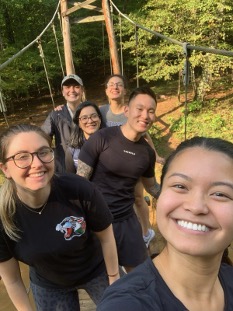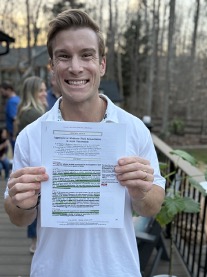Our residents have protected time from clinical duties for weekly didactics on Thursdays from 9 am – 2 pm. Our didactic curriculum is designed by our chief residents under the guidance of our PD and APDs. The core content in emergency medicine is covered in a series of organ system-based modules and is taught through didactic lectures, interactive workshops/oral boards sessions, resident presentations, and quality and safety conferences. Evidence-based medicine and research topics are integrated in the curriculum, led by Duke's cutting-edge clinical research faculty.
Once a month, our residents also take part in simulation-based learning in our advanced simulation lab. Outside of the emergency department, residents also have the opportunity to get hands-on exposure to critical procedures such as pediatric intubations in the pediatric cath lab or cricothyrotomy and chest tube practice in the cadaver lab.

Duke is home to many incredible training programs, and we are fortunate to learn from our colleagues in specialties such as orthopedics, OB/GYN, trauma surgery, and neurology through joint simulation and didactic sessions.
Outside of our regularly scheduled curriculum, we join our colleagues at UNC EM twice a year for a friendly Sonogames competition and Wilderness Medicine Day in our nearby Eno River State Park.

Each month, we gather to discuss current topics in EM literature at a journal club hosted at a faculty member's house.
